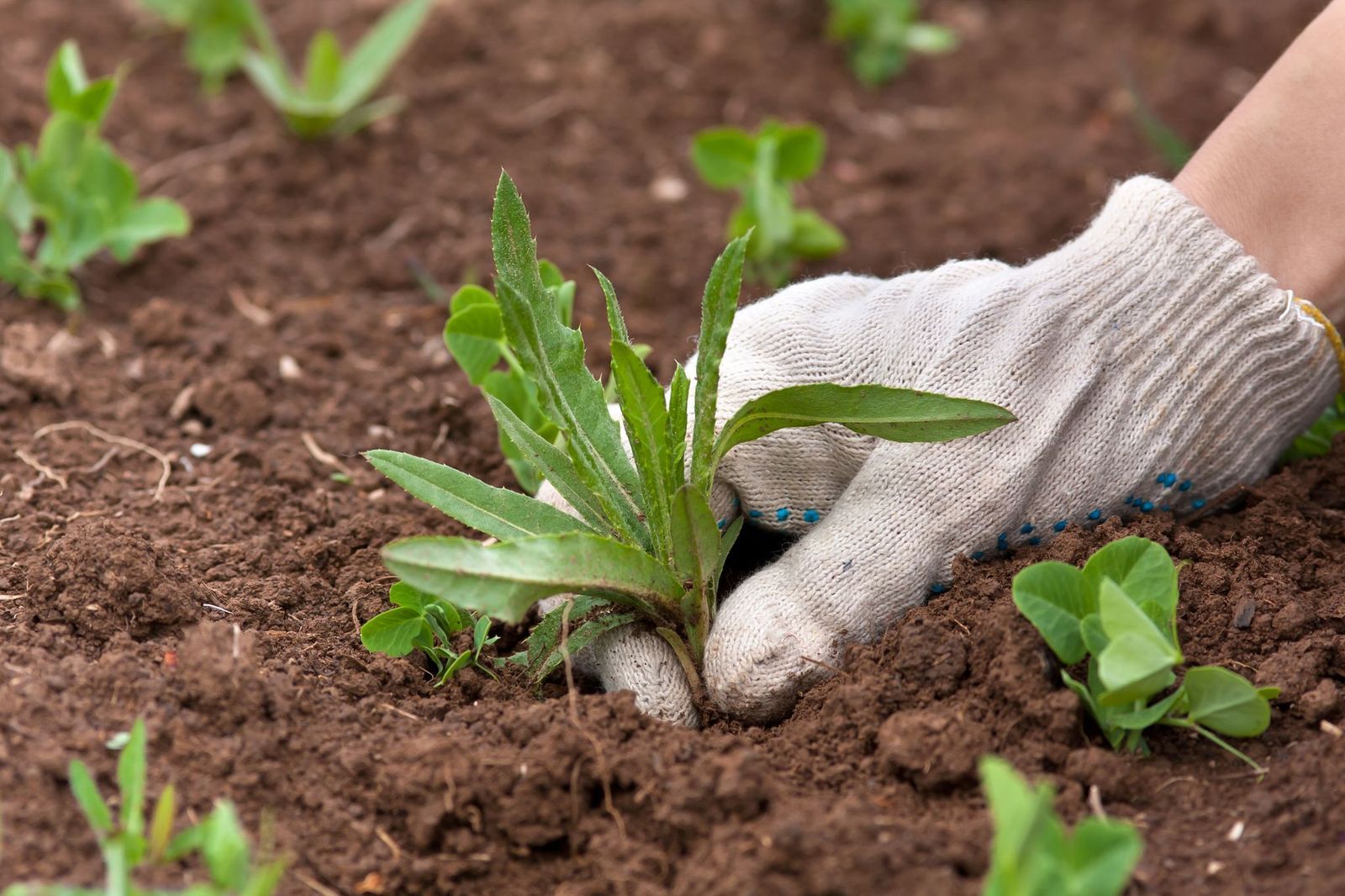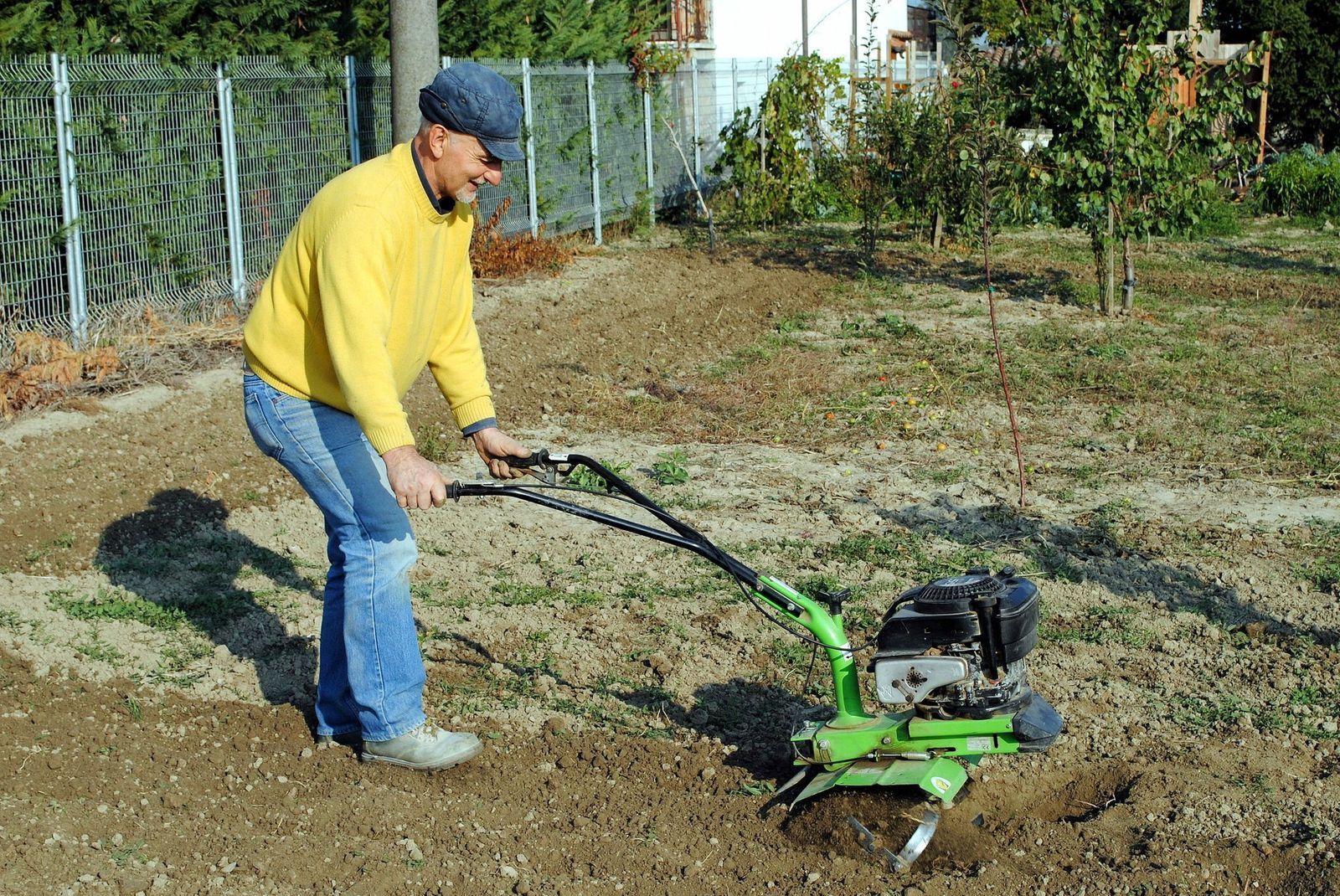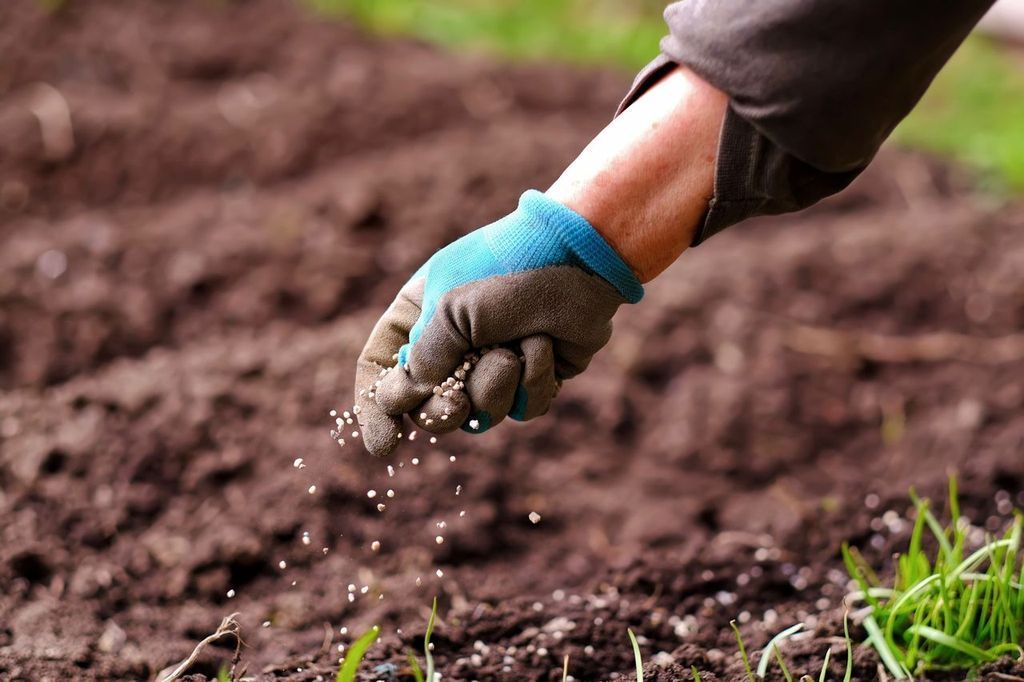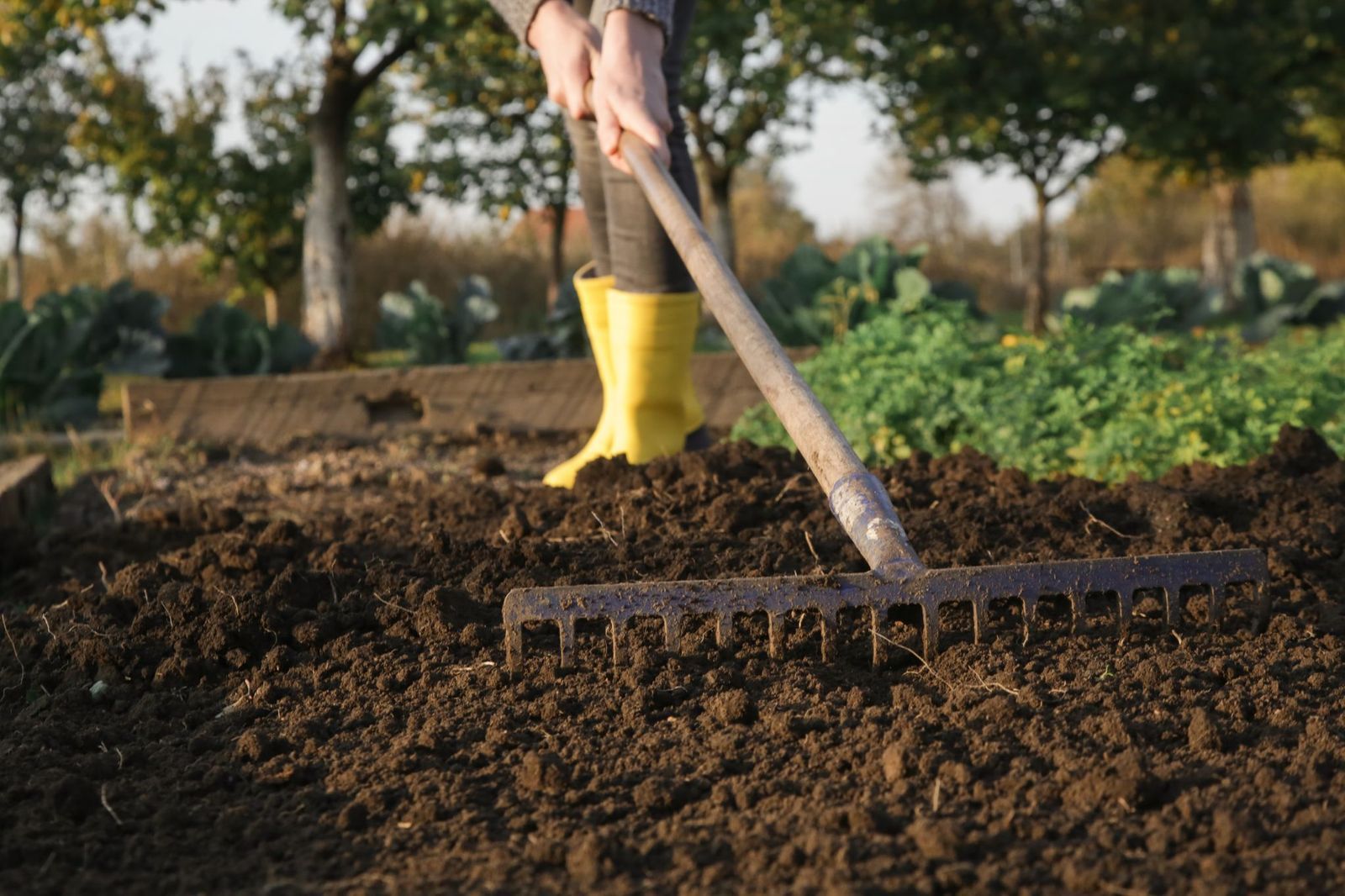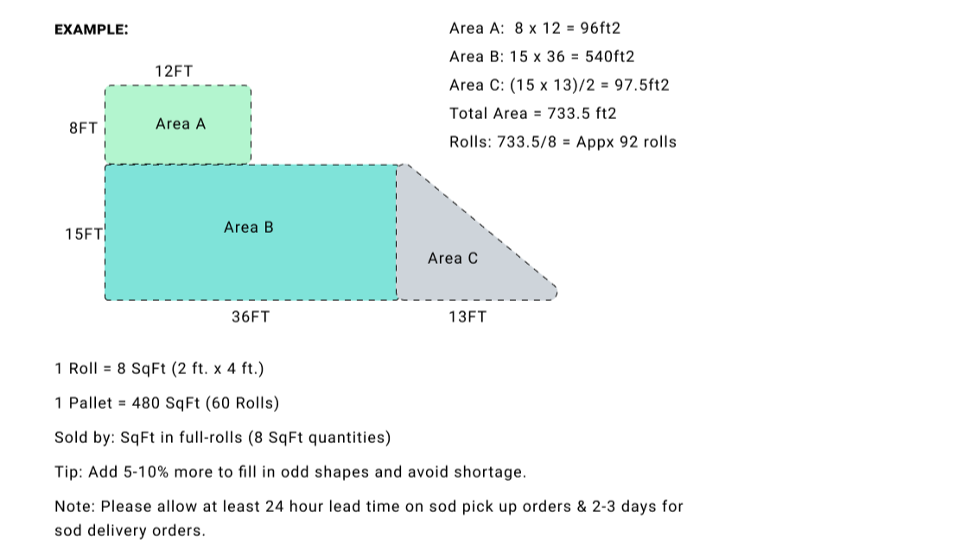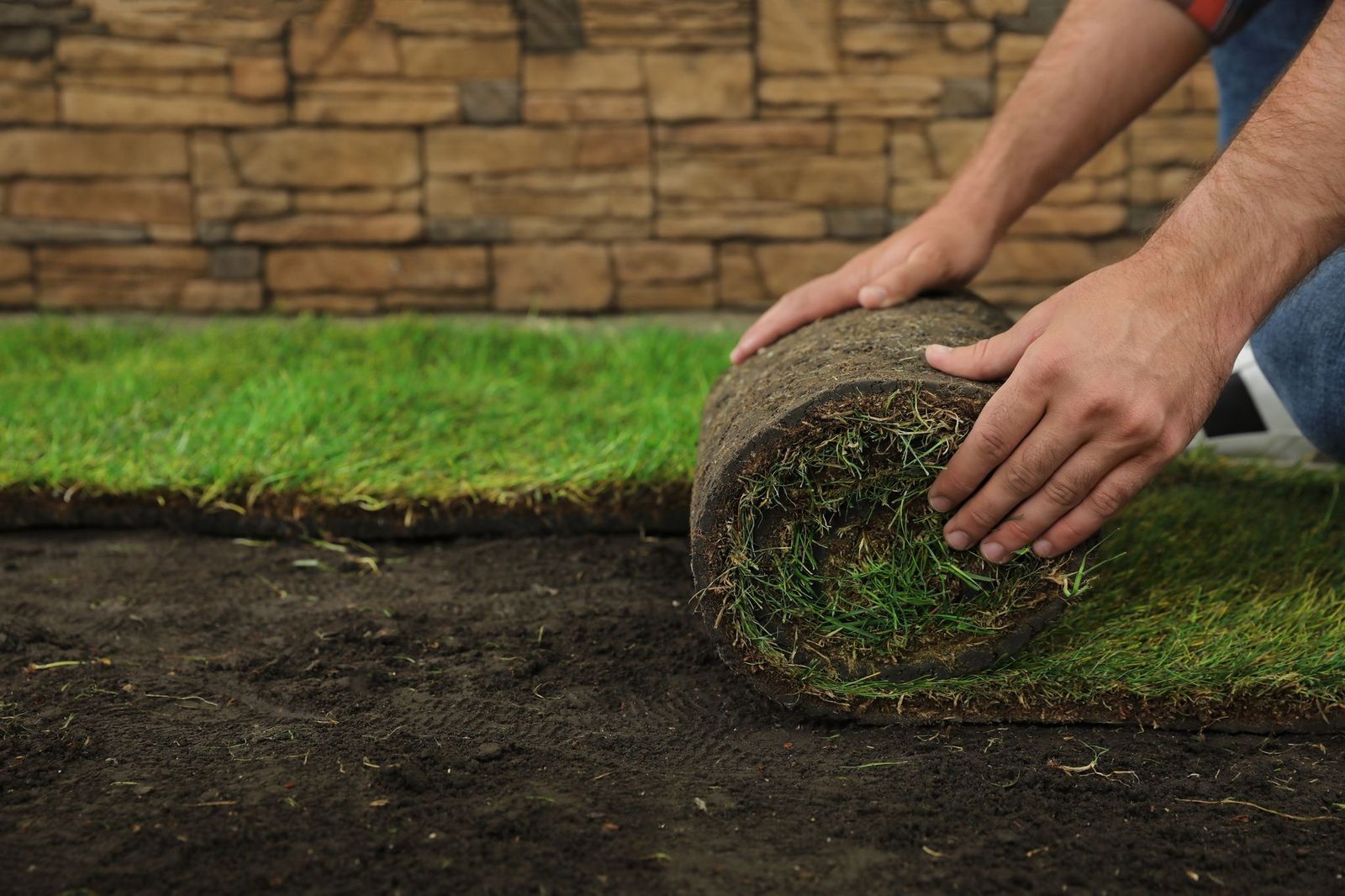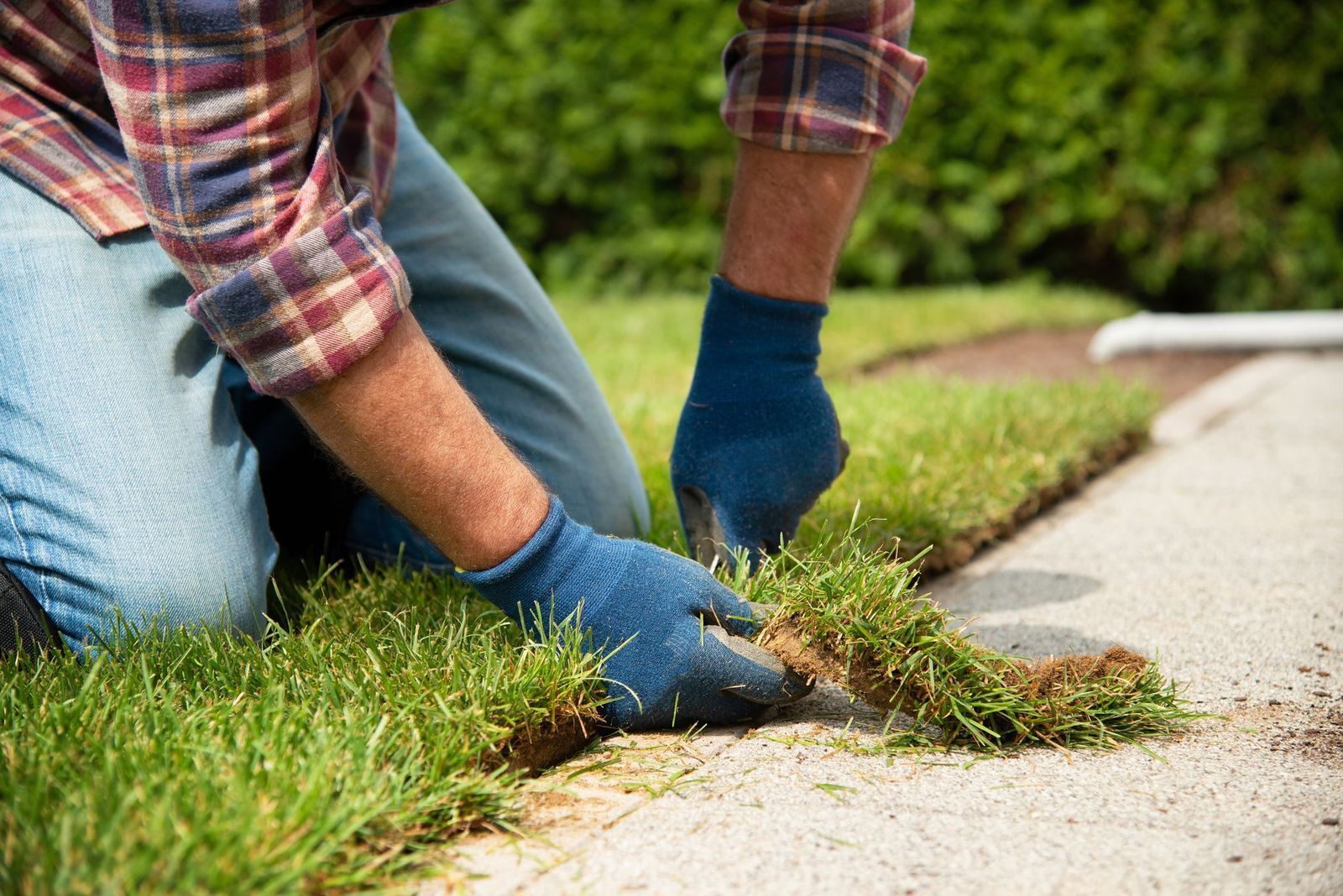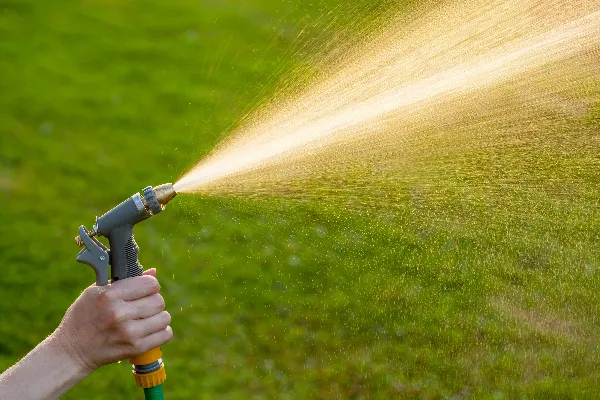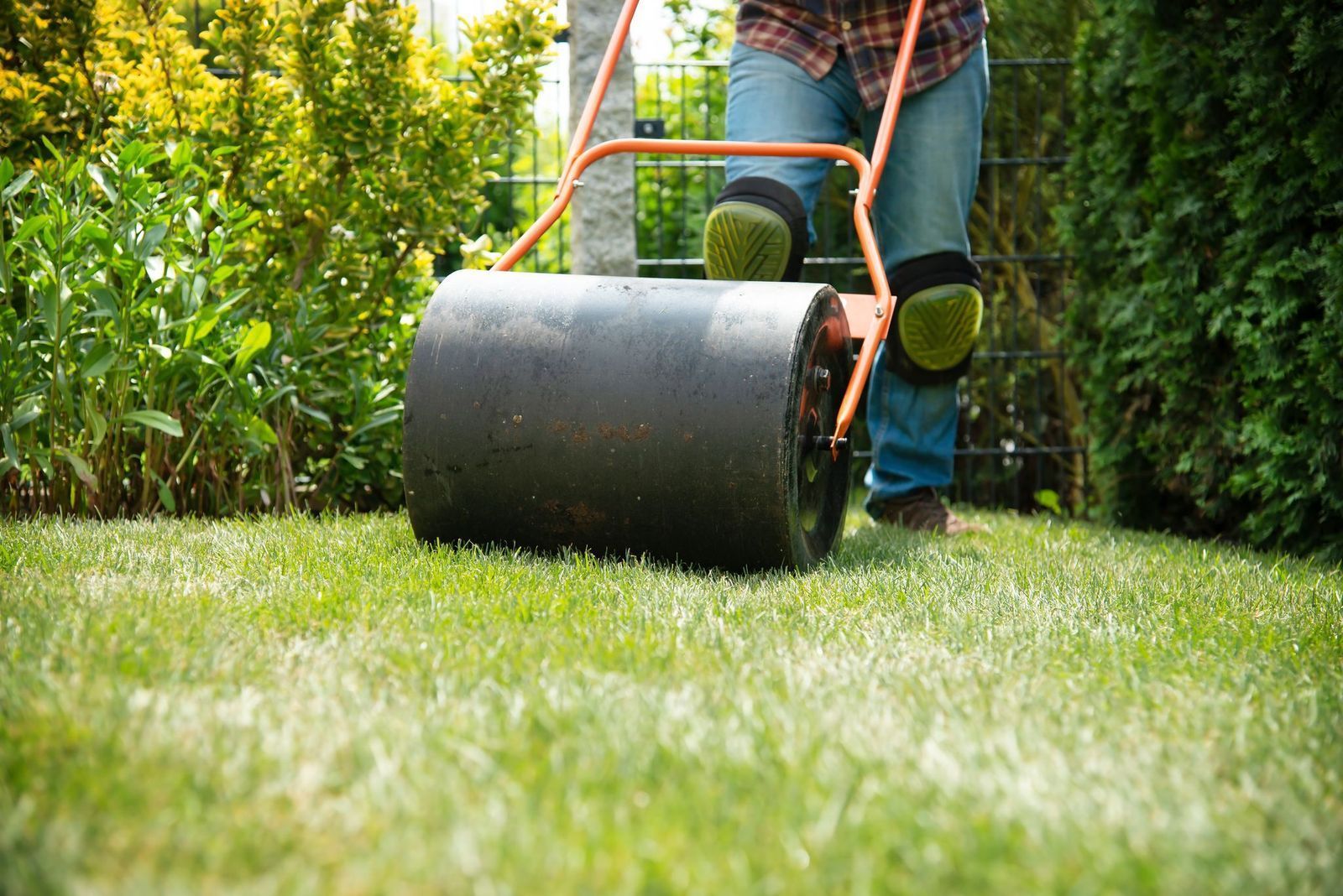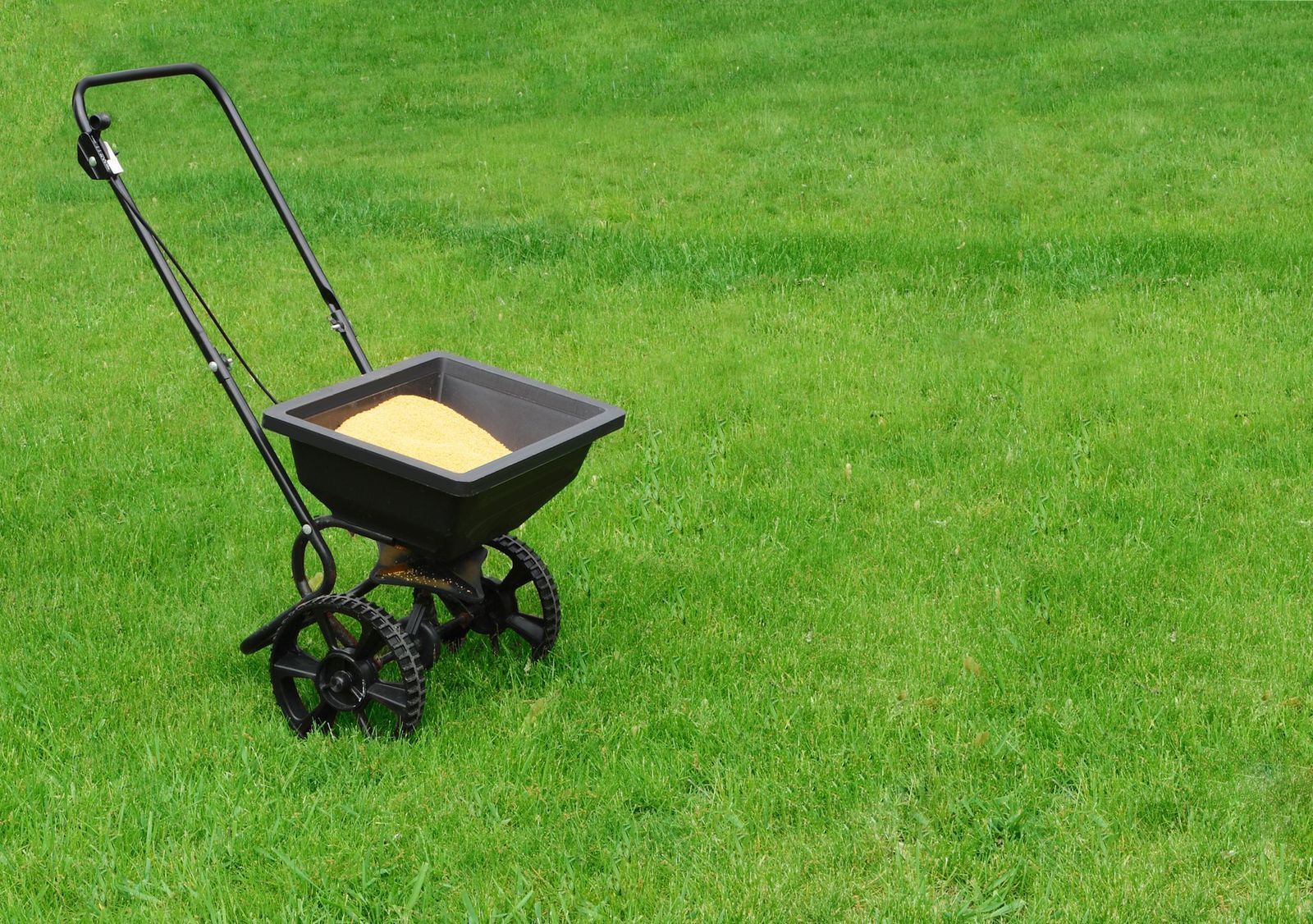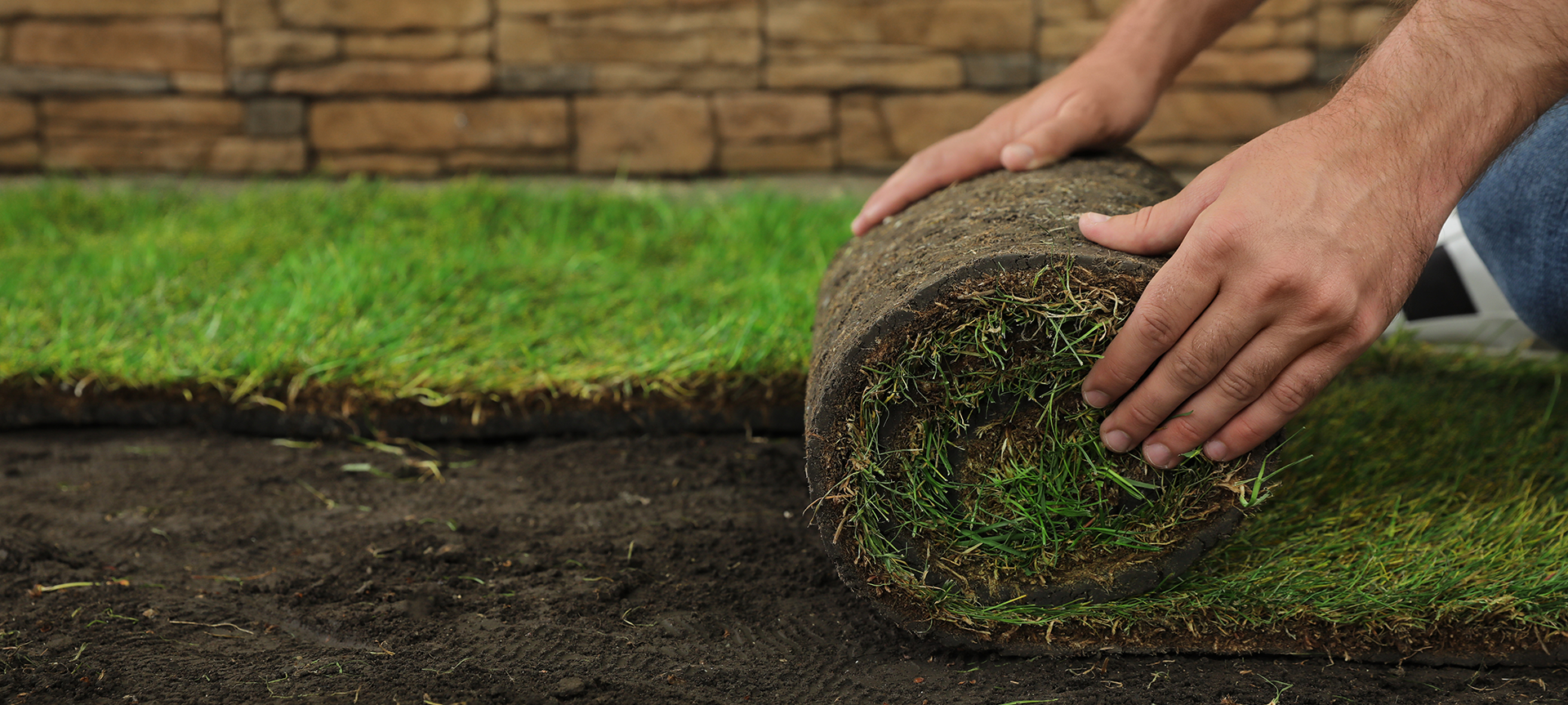
New Sod Lawns
Preparation, Installation & Long Term Care
Preparing for Sod
A few steps of preparation will ensure that your sod will grow strong and healthy for years to come.
In This Article
Step 1 - REMOVE WEEDS & DEBRIS
Clear your area of all weeds, large rocks, debris and existing grass.
Step 2 - PREP TOPSOIL
Loosen topsoil to a depth of 4 - 6 inches with a spade or rototiller. If topsoil is brought in, use a minimum of 3 inches and incorporate into existing soil. Level using a rake. If necessary, add dolomite or agriculture grade limestone at th e rate of 50# per 1000 square feet. Rake and level simultaneously.
Step 3 - FERTILIZE
Prior to Turf installation - apply a starter fertilizer (like 16-16-16), follow the directions from bag. (Note: DO NOT use weed and feed fertilizer, it will hurt new grass!)
Step 4 - RAKE & WATER
Rake area lightly and roll with lawn roller 1/3 full of water. This will firm the soil surface and reveal low areas which need to be filled in.
Keep the grade 1/2 inch below sidewalks and driveways.
Water the area to settle the soil and provide a moist base for the turf.
Aim for a solid surface area that still allows you to leave footprints, but not so soft that you end up with uneven surface after installing turf.
5. ORDER AHEAD
Order your sod to be ready the afternoon before or the same morning you plan to install it. Ideally, it should be installed immediately after it's delivered.
PRE-ORDERS REQUIRED:
Or sod is cut to order, please call ahead to place your order.
To ensure you get fresh sod when you need it, please allow for minimum 24 hrs lead time, and 2-3 days deliveries.
Call or email us for availability and pricing.
Installing Sod
Follow these steps to ensure your new sod is set up for success!
Step 1 - INSTALL RIGHT AWAY
Begin laying sod immediately after delivery. Start along your straightest edge (usually a walkway or driveway).
Step 2 - STAGGER ENDS & CUT TO SHAPE
Lay sod in a staggered “brick-like” pattern. Push edges tightly together, do not overlap. Cut pieces with a sharp knife to shape around corners, trees, and borders.
Step 3 - WATER IS VITAL - KEEP MOIST!
Water immediately! Start watering within 30 minutes of laying, even if all the sod is not yet installed. Don’t let it dry out! This is especially important during hot & dry weather months.
Step 4 - COMPACT WITH ROLLER
Roll sod with lawn roller to ensure good sod to soil contact & help avoid pockets.
Step 5 - KEEP A REGULAR WATERING & FERTILIZING SCHEDULE
Keep it green! Remember to consistently water and fertilize your new lawn! Adjust the frequency based on the prevailing weather conditions, aiming for once or twice a day, while being cautious not to create puddles. Optimal watering times are early morning or evening to prevent sunburn on the grass.
Follow our seasonal lawn care guide, for fertilizing recommendations, in order to provide essential nutrients needed.
Caring for New Sod
Follow these steps to ensure your new sod grows strong through its first growing season & beyond.
First Month:
Initial Watering
- Water about 1 - 2x per day, aim for the water to soak in, about 6 inches deep, but avoid making puddles.
- Weather will vary and more or less water will be necessary. Hot days may call for watering 3 - 4x per day.
- Caution: Don’t water during the hottest part of the day, as it can burn the grass!
FIRST MOW
Mow at regular intervals starting when the grass reaches 2 - 3 inches tall. Depending on the time of year, this may be as soon as 7 - 10 days after installing, or much longer during winter months.
Use a different mowing pattern each time (Alternate forward/backward or side - to - side).
- Mowing is needed more often in the spring & fall.
- Keep blade sharp to prevent bruised & torn grasses, which can create brown spots.
- Never take more than 1/3 the length or 3/4 in. off at a time.
After 1 Month:
WATERING – AFTER 1 MONTH
Give your grass approximately two good soaks per week (about 1/2 in. water – to a depth of 6 to 8 inches)
- Water during mornings or evenings, when the sun is less harsh.
- To prevent root rot, allow soil surface to dry between watering.
- Increase watering in hot weather and decrease during periods of heavy rainfall.
FERTILIZER – AFTER FIRST MOWING
After first mow, apply fertilizer to dry lawn, then water thoroughly.
- Use a balanced fertilizer, such as 21-7-14, 16-16-16, 10-20-20, or 12-2-8
- Use recommended application rate, usually 7-8 lbs/1000ft
Spreader Settings: Each spreader is different, the best way to gauge your setting is to measure out an area about 10x10 and a small amount of fertilizer (a little less than 1 lb) – then begin to spread & observe how quickly the fertilizer is being spread, then adjust accordingly.
30 DAYS AFTER FIRST MOWING
Based on the vitality and color of lawn – beginning about 30 days after first mowing, apply a 21-7-14 fertilizer every month during growing season (usually about March to September).
3 Months & Beyond:
MOWING – ONCE ESTABLISHED
Continue to mow at regular intervals with a sharp blade, following the rule – “ Never take more than 1/3 the length or 3/4 inch off at a time. ” Target Height for grass: 2.5 to 3 inches
FERTILIZE REGULARLY
Based on the vitality and color of lawn – Apply a maintenance fertilizer every month during growing season (Mar - Sept).
Apply a winter fertilizer (12-10-10, 10-20-20) in October or Nov, usually around last mowing.
- Apply at recommended rates, usually 7-8 lbs./1000 SqFt.
- Apply to dry grass, then water in thoroughly.
Tip: aim for fertilizing around each of these major US Holidays
- Easter (16-16-16 or 12-2-8 in March/April as a starter)
- Memorial Day (21-7-14 or 12-2-8 in May as maintenance)
- 4th of July (21-7-14 or 12-2-8 as maintenance)
- Labor Day (21-7-14 or 12-2-8 as maintenance)
- Halloween to Mid-Nov. (12-10-10 or 10-20-20 around last mowing for season)
Warning: Do not use weed & feed fertilizer on a new lawn! If weeds are coming up, use a weed killer directly on the spots. We do not recommend a weed killer sprayed over the entire lawn.
INSECTICIDE
Apply insecticide 1x/year – either in Fall (Oct) or Spring (Mar ch) for preventative maintenance.
Maintaining Your Sod
After the first year, follow care instructions for
Established Lawns to maintain a lush healthy lawn for years to come.



